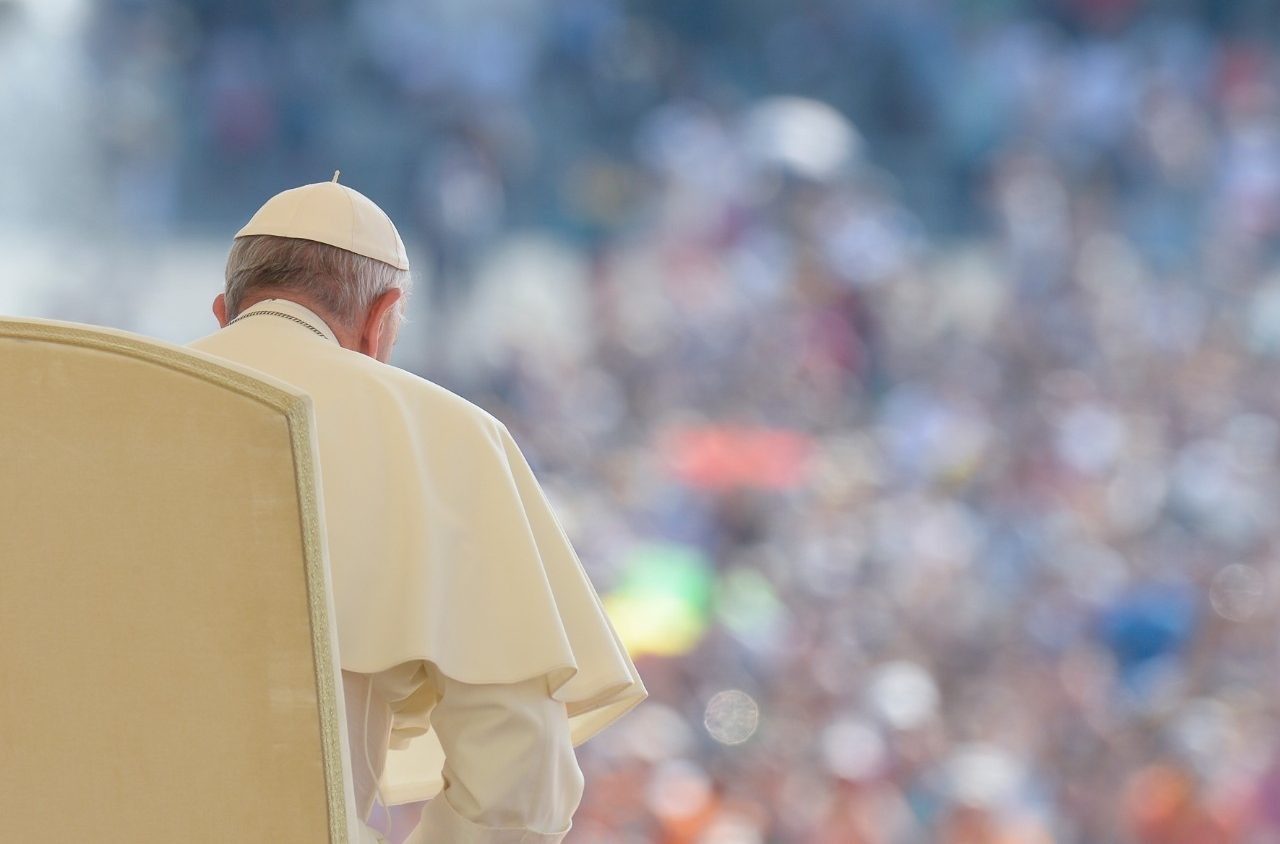Audience: ‘may the Lord bring a just peace” in the Holy Land and Ukraine, pope says
After the catechesis dedicated to the French mystic Madeleine Delbrêl, Francis spoke again of the tragedies of "peoples who are suffering from war" in Palestine, Israel and Ukraine. "War is always a defeat," the pontiff reiterated. He also spoke about the most vulnerable people in war, especially young people, many of whom die.
Vatican City (AsiaNews) – Before the final blessing, the faithful gathered in St Peter's Square for this morning's general audience, the first of the month of November, heard another papal plea for peace.
“Let us think and pray for the peoples who are suffering from war. Let us not forget martyred Ukraine and let us think of the Palestinian and Israeli peoples: may the Lord bring a just peace,” Pope Francis said in a faint voice, slowly punctuating the words, conveying his great concern for what is happening in the world.
Also today, as he had already done on Sunday at the Angelus, the pontiff turned his thoughts to young people and children who are suffering precisely because of war.
This follows the meeting on Monday with more than 7,000 children from 84 countries at the Nervi Hall, which was also attended by representatives of countries in conflict, as well as the words of UN Secretary-General Antonio Guterres, who recently described Gaza as a "graveyard of children".
"There is a lot of suffering. Children are suffering. The sick, the elderly, are suffering. And many young people are dying. Let us not forget: war is always a defeat," Francis said.
At the start of the audience, he continued his catechesis on the passion for evangelization, "the apostolic zeal of the believer." Today’s figure was the Venerable Servant of God Madeleine Delbrêl (1904-1964), a French "social worker, writer and mystic", who "lived for more than thirty years in the poor and working-class outskirts of Paris", Francis said.
As a “witness of the Gospel", Delbrêl’s encounter with faith occurred around the age of 20, "after a period of agnosticism in her youth,” thanks to the closeness and example of some believing friends.
From then on, she tried to give voice to that "profound thirst that she felt within," the Holy Father said, coming to understand that it was precisely God, represented by that "emptiness that cried out her anguish in her”.
Thus, she began to dedicate her life to the Lord, "in the heart of the Church and in the heart of the world," he noted, "sharing in fraternity" the life of "street people." This mission led her to speak of the "spirituality of the bicycle".
In this regard, Pope Francis read some words that Madeleine Delbrêl addressed to Jesus. “To be with you on your path, we must go, even when our laziness begs us to stay. You have chosen us to stay in a strange balance, [. . .] A bit like a bicycle, which does not stay upright unless its wheels turn. …
The Holy Father spoke of the French Venerable as a person "with a constantly outgoing heart,” who allowed herself to be "challenged by the cry of the poor".
“She felt that faith cannot be reduced to a hereditary fact, to something taken for granted; otherwise, you don't grasp its beauty and novelty anymore," he went on to say.
The pontiff then explained one of her teachings, namely that “by evangelizing one is evangelized.”
All believers today learn that, "in every personal or social situation or circumstance of our life,” we can also recognize, as Delbrêl did, the Lord’s presence. He “calls to us to inhabit our own time, to share our life with others, to mingle with the joys and sorrows of the world.”
Above all, her example teaches us that "secularized environments" help conversion, “because contact with non-believers prompts the believer to a continual revision of his or her way of believing and rediscovering faith it its essentiality.”
29/05/2024 16:39







.png)










